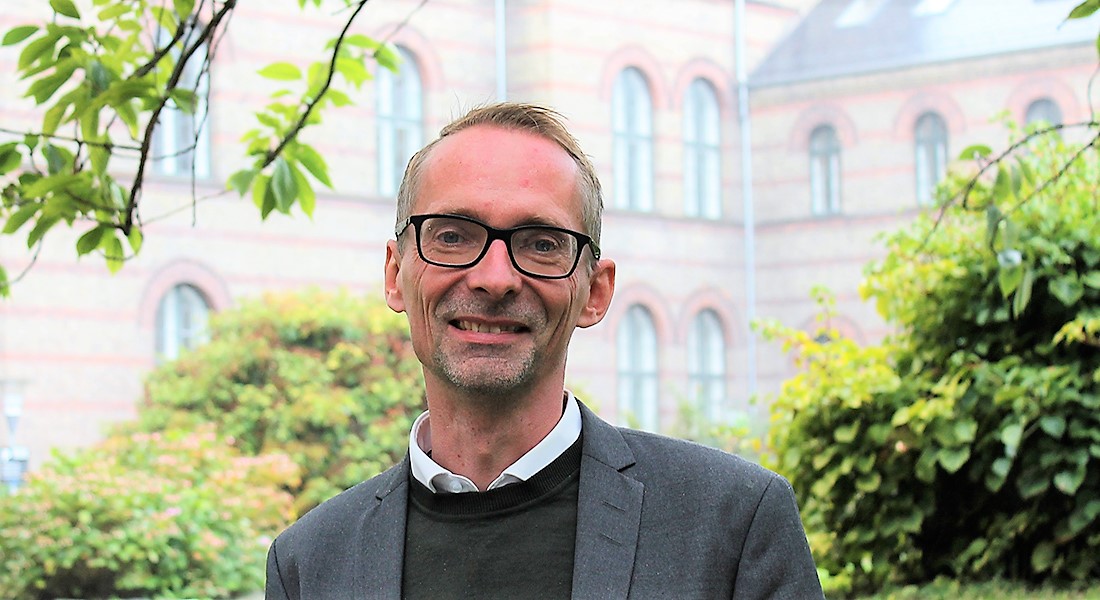
New defence agreement secures the financing of the Centre for Military Studies
The first partial agreement under the defence agreement for 2024-2033 includes a continuation of the cooperation between the parties to the defence agreement and the University of Copenhagen about the Centre for Military Studies. Director Kristian Søby Kristensen provides insights into the focus of the coming years.

The Faculty of Social Sciences' largest grant is extended. It goes to the Centre for Military Studies in the form of a basic grant for strategic and security policy research as well as a grant focused on international law research.
The Centre for Military Studies is part of the Department of Political Science. Head of Department and Professor Nina Græger is very pleased that the cooperation with the parties to the defence agreement and the Danish Ministry of Defence will continue.
"This is good news for Danish decision-makers and everyone who is interested in ensuring a well-founded basis for strategic decisions about Denmark's future defence," says Nina Græger and elaborates:
"The centre contributes to important, research-based knowledge and communication on everything from procurement, logistics and recruitment – including whether conscription should be extended to women, as in Norway and Sweden – to the geopolitical framework for defence, including the war in Ukraine, the expansion of NATO and a complex security policy landscape with multiple threats."
A technological race
Centre Director Kristian Søby Kristensen is also pleased that the centre's finances are now in order. He has a clear picture of what the near future holds: The Centre for Military Studies will produce research and knowledge relevant to the comprehensive build-up of the Danish defence the coming years, which politicians have decided to spend more than DKK 150 billion on.
"Not since the Cold War has Denmark allocated so much money to strengthen its defence, and in terms of resources, Denmark is starting from a relatively low level. There are a lot of strategic decisions to be made. We can support with crucial knowledge," says Kristian Søby Kristensen.
In particular, Kristian Søby Kristensen predicts that the role of defence technology will change and increase in the coming years.
"Denmark sees itself as being in technological competition with some major players. The development and commercialisation of defence technology will play a completely new political and strategic role for Denmark," he predicts.
Kristian Søby Kristensen also sees new tasks and new partners, especially in Denmark's neighbourhood.
"The Baltic Sea, the Nordic region and the Arctic will play a major role in the new defence policy, so the Centre for Military Studies will also have a significant focus on this. In addition, there will be research into major global challenges, both in Europe's near neighborhood and globally," he says.
Gives UCPH a clear voice in the debate
Right now, Danish politicians face a number of important decisions that will radically change Denmark's defence. The Centre for Military Studies will help decision-makers arrive at these decisions in a qualified manner.
"It involves everything from investments in new military equipment to principles for conscription," says Kristian Søby Kristensen.
Regardless of the topic, the starting point at the Centre for Military Studies is that the academic knowledge produced must always be relevant to Denmark.
"Furthermore, our research gives the University of Copenhagen a strong basis for realising its new ambition to benefit society to an even greater extent, also when it comes to defence and security policy," concludes Kristian Søby Kristensen.
Contact
Kristian Søby Kristensen
Head of Centre
Centre for Military Studies
Mail: ksk@ifs.ku.dk
Phone: +45 28 72 90 17
Simon Knokgaard Halskov
Press and communication advisor
The Faculty of Social Sciences
Mail: sih@samf.ku.dk
Phone: +45 93 56 53 29
